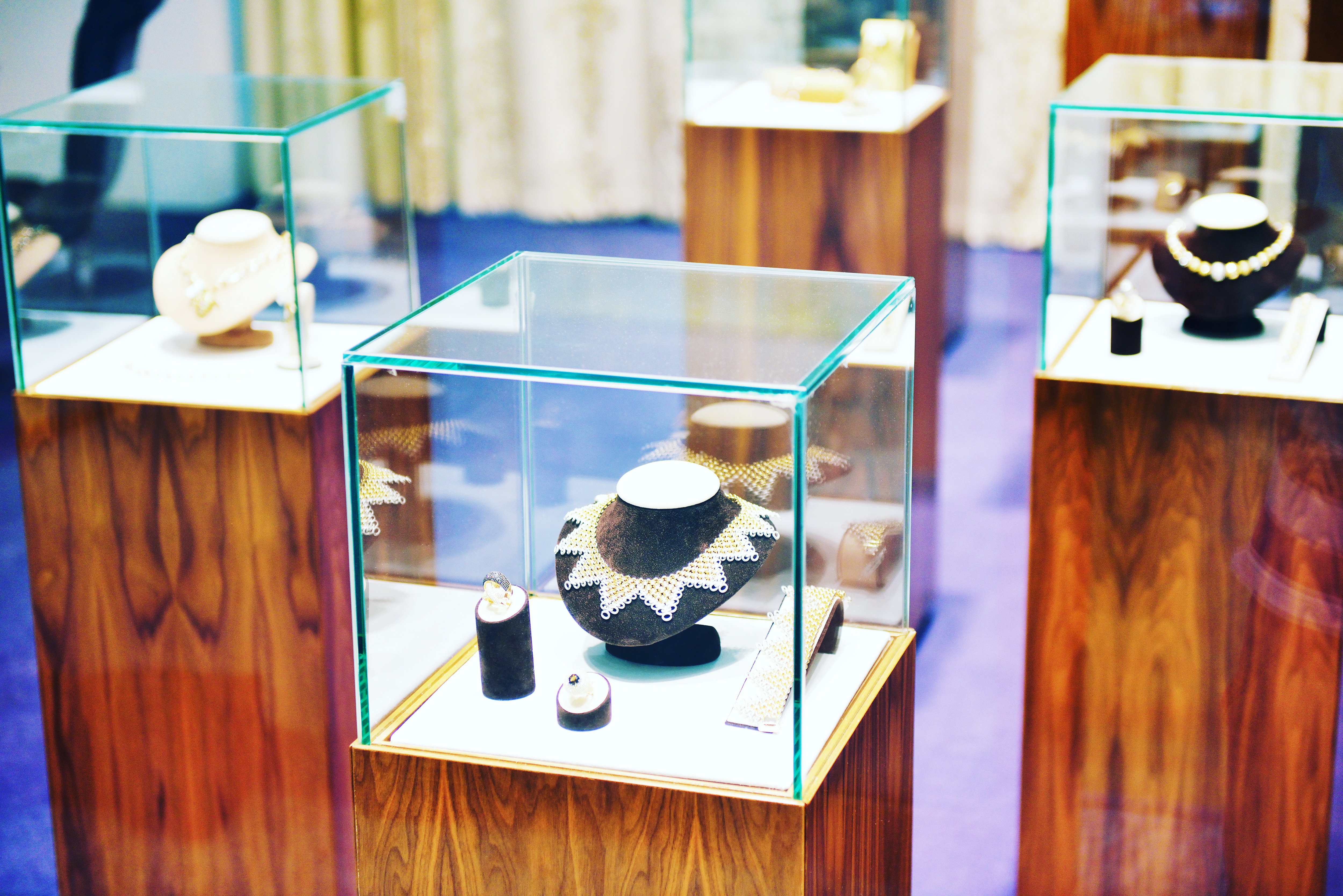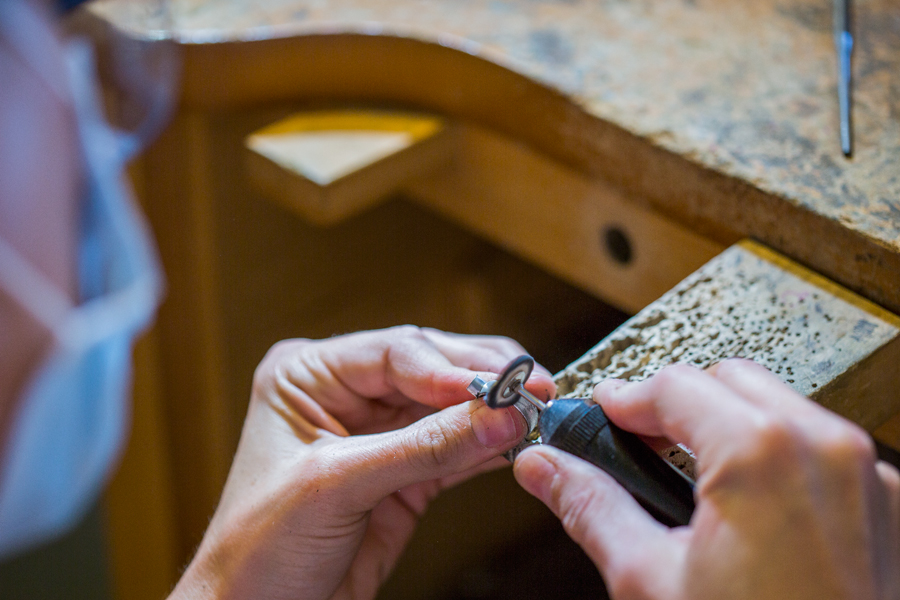Career Services at universities don't often cater to jewelry students entering the field after graduation. Get specialized advice on how to enter the jewelry work force and earn a living. This article explores jewelry jobs and career information.
Congratulations, you found your passion! It's exciting to connect with an art form and realize that you want to work in jewelry. But, what does that really mean after you finish school? What options do you have for jewelry jobs to start your career? Graduation looms large and can be a scary date on the calendar when you don't have your life all figured out yet. These are tough questions. Typical career services counselors may lack the specific industry expertise required to guide new jewelry grads on their job search. This article will walk you through some choices and resources to help you look ahead with confidence. New jewelers have been entering the workforce for generations. So, fear not! You are not alone and there are many paths you can take.
1. Bench Jeweler
Working as a bench jeweler is a great career option if you have strong metalsmithing and stone setting skills. Many entry level bench jeweler jobs are under a more experienced master jeweler who can act as a mentor and help you gain valuable experience in the industry. Junior bench jewelers often handle repairs in fine jewelry stores and may do some basic custom work. You will learn how to troubleshoot problems, fix different issues, quote for repairs and more. Working in the back of a jewelry store will give you insights into the retail fine jewelry world and how customers buy.
2. Studio Jewelry Assistant
If you are interested in working on designer jewelry and perhaps launching your own business one day, this is a fantastic way to get started. Many jewelry design companies look for BFA graduates to work on their production lines fabricating, finishing and assembling. This type of job helps you to hone your craftsmanship and train your hands to flawlessly execute different techniques. You will also learn the inner workings of a small jewelry business as you soak up the office activities happening around you. These businesses must handle customer service, shipping, sourcing and much, much more. It is a great introduction if you are thinking of entrepreneurship but don't feel ready to take the plunge right away.
3. Start Your Own Business
Entrepreneurship is an exciting pursuit for many new jewelers. If you love the idea of designing and selling your own collections, this may be the route for you. Small jewelry business owners wear a lot of hats including management, sales, marketing and sourcing. Some jewelers love those challenges and the variety of responsibilities it takes to run a business. If this is a path you are considering, we encourage you to look at The Halstead Grant program for resources to help you start your business and the competition itself for the chance to win start-up funding and recognition as an emerging artist.
4. Adjunct Faculty or Teaching Positions
Universities and independent jewelry studio schools are often hiring instructors, especially for introductory level jewelry classes. There is no better way to learn than to teach. This job allows you to share your passion while you get more hands-on time in a working studio. Another key benefit is access to a fully equipped studio. Some programs will allow faculty to use facilities for personal or business projects.
 5. Retail Jewelry
5. Retail Jewelry
One of the most widely available jewelry jobs is working for a retail store. Consider working at a jewelry counter right out of school. Experience helping customers at a fine jewelry store or an art jewelry gallery will teach you a lot about the realities of selling work and handling customer service. These are important skills you can leverage into a longer trek career in jewelry.
6. Continue Your Education with an MFA
Some career tracks in jewelry will require an MFA degree so many BFA students contemplate jumping straight into a master's program. If you really want to become a tenured professor, department head, exhibition artist or museum curator, this may be the track for you. If not, consider other options before committing to this expensive path. An MFA is a major undertaking. Don't just go this route to buy time if you aren't sure what to do next.
7. Join the Business World
The jewelry industry extends far beyond academia and independent artists. Consider working for one of the major retail jewelry brands or suppliers in the field. These companies range in size tremendously. Many have positions available for experienced jewelers in design, operations, or marketing. Explore Halstead Jobs & inquire about current internships.
8. D. All of the Above
Ok, maybe not all of the above; but, consider mixing and matching part-time jewelry jobs from the options above. Many jewelers teach a couple of classes a week and work part-time for another jeweler while simultaneously starting to launch their own business. It sounds complicated, and it is. However, sometimes you gotta do what it takes to pay the bills and maximize your time in jewelry as best you can. Everyone has to start somewhere. Even if your jewelry jobs are part-time you will be making networking connections in your field that can lead to more stable opportunities.
Once you have a path in mind, how do you get that job? A resume and online job listings are a good way to start. However, nothing beats networking in a small field like jewelry. Get out there and join professional organizations, guilds and clubs in the metalsmithing world. Attend conferences, introduce yourself to speakers, and become active on social media. Personal connections often present opportunities that you would never encounter otherwise.
Career Services Resources for Jewelry students:
Windgate Fellowship for Graduating Seniors - Fellowship can be used for anything to advance your artistic career, except tuition.
GIA Career Fairs - Even if you did not graduate from a GIA program, you can still attend their career fairs and access their job boards.
WJA Job Boards - Job board is available to all members and non-members of the Women's Jewelry Association.







